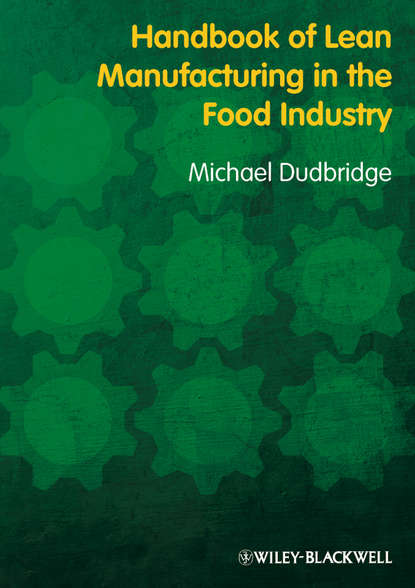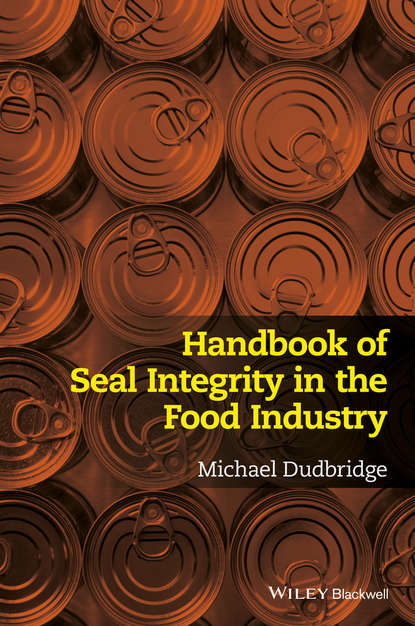Поиск:
Войти
Книги автора: Michael Dudbridge
Сортировка
- сначала новые
- сначала новые
- по рейтингу
- по просмотрам
- по названию
The principles of lean manufacturing – increasing efficiency, reducing waste, lowering costs and imp…
The principles of lean manufacturing – increasing efficiency, reducing waste, lowering costs and improving control – may be applied to any industry. However, the food industry is unique, and creates unique demands. The political, social and economic importance of food is unrivalled by any other form of produce, as is the scrutiny to which the manufacture of food is subjected. For the food industry, lean manufacturing is not simply a cost-saving strategy, but is directly linked to issues of sustainability, the environment, ethics and public accountability. Handbook of Lean Manufacturing in the Food Industry is a major new source of information and ideas for those working in food manufacturing. Offering a fresh and modern perspective on best practice, it points the way to fewer breakdowns, reduced quality faults, improved teamwork and increased profits. With a focus on operations management and new process development, the book is accessible and easy to read, and is complemented by a wealth of practical examples drawn from industry. The author’s conversational style and questioning approach will be invaluable to food manufacturers who are seeking solutions to fundamental issues. The book is directed at those who are working in food manufacturing or the wider food industry, particularly factory operations managers and training teams who are looking for resources to help with lean manufacturing implementations. Others in the supply chain, from producers to retailers, will also find it invaluable. The book is a clear and timely introduction for students and lecturers in food science and technology who want to access the reality of lean manufacturing as well as the theory.
Seal integrity is vital in food supply chains with modern methods of food retailing and a requiremen…
Seal integrity is vital in food supply chains with modern methods of food retailing and a requirement for very high levels of consumer satisfaction. Robust packages are an important factor in food preservation, consumer confidence in the product as well as waste minimisation and cost control throughout the system. The Handbook of Seal Integrity in the Food Industry is aimed at people working in food supply chains and associated industries from packing machine operators to quality managers and from retail technical staff to packaging machine designers and maintenance engineers. This well illustrated and comprehensively indexed handbook paints a complete picture of all of the factors that operate together in the creation of food packages with high performing seals. A comprehensive review of the reasons for poor seal integrity is included along with suggestions for improvements in maintenance, machine set up and operation. Seal testing systems are featured along with management techniques to ensure a high level of performance and consistency in your business and a ?right first time? approach within packaging systems. The design and operation of the main types of sealing system is reviewed for rigid, semi rigid and flexible packaging systems along with an overview of packing materials such as thermoplastics. Finally the handbook looks at innovations in the packaging of food products with a view of developments in packaging materials, sealing systems and on-line seal integrity measurement and monitoring systems.
The principles of lean manufacturing – increasing efficiency, reducing waste, lowering costs and imp…
The principles of lean manufacturing – increasing efficiency, reducing waste, lowering costs and improving control – may be applied to any industry. However, the food industry is unique, and creates unique demands. The political, social and economic importance of food is unrivalled by any other form of produce, as is the scrutiny to which the manufacture of food is subjected. For the food industry, lean manufacturing is not simply a cost-saving strategy, but is directly linked to issues of sustainability, the environment, ethics and public accountability. Handbook of Lean Manufacturing in the Food Industry is a major new source of information and ideas for those working in food manufacturing. Offering a fresh and modern perspective on best practice, it points the way to fewer breakdowns, reduced quality faults, improved teamwork and increased profits. With a focus on operations management and new process development, the book is accessible and easy to read, and is complemented by a wealth of practical examples drawn from industry. The author’s conversational style and questioning approach will be invaluable to food manufacturers who are seeking solutions to fundamental issues. The book is directed at those who are working in food manufacturing or the wider food industry, particularly factory operations managers and training teams who are looking for resources to help with lean manufacturing implementations. Others in the supply chain, from producers to retailers, will also find it invaluable. The book is a clear and timely introduction for students and lecturers in food science and technology who want to access the reality of lean manufacturing as well as the theory.
1
Популярные книги















